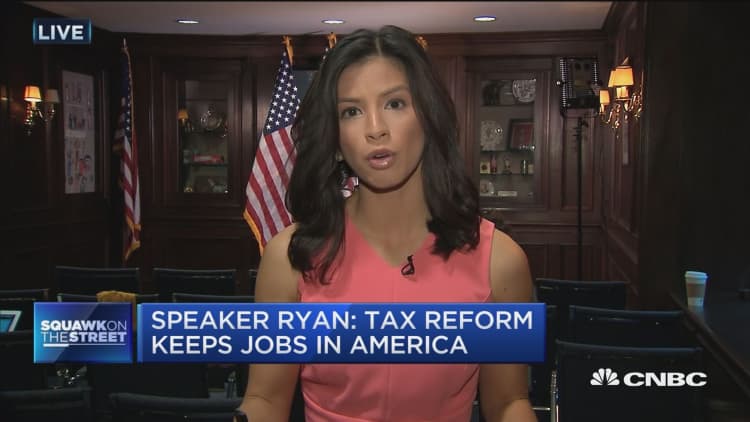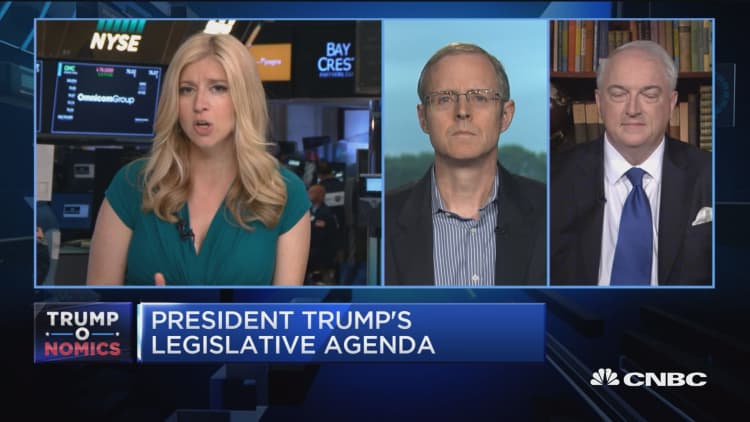
Companies that would bring foreign cash back to the U.S. at a reduced tax rate likely would unleash some $250 billion back into the economy and markets, according to a Goldman Sachs analysis.
That infusion would be split, the firm's strategists said, between investors and the broader economy, as companies both would return cash to shareholders through dividends and buybacks and put the money to work in the form of capital expenditures, research and development and M&A activity.
Benefits would be skewed toward information technology and health-care companies, which by far hold the most overseas cash in total and as a percentage of market cap. Apple, for instance, has $216 billion stashed abroad, which is about 25 percent of its cap, while Cisco has $68 billion, or 37 percent of its cap, the highest level of those Goldman considers most likely to gain from repatriation.
The analysis broke down companies with large amounts of money stored overseas in total and as compared to market caps. Companies with at least 20 percent of their market cap in foreign cash:
Repatriation winners
| Company | Ticker | Overseas cash ($B) | As pct of market cap |
|---|---|---|---|
| Cisco | CSCO | 68 | 37 |
| NetApp | NTAP | 5 | 36 |
| QUALCOMM | QCOM | 30 | 35 |
| Apple | AAPL | 216 | 25 |
| Amgen | AMGN | 36 | 24 |
| Oracle | ORCL | 48 | 22 |
| Microsoft | MSFT | 128 | 20 |
| Ralph Lauren | RL | 1 | 20 |
More details of the tax reform plan are expected to be released Wednesday. Goldman expects the one-time tax rate for repatriated profits to be around 12.25 percent.
"Should tax reform/cuts be adopted, it would likely include a one-time tax on untaxed foreign profits," Goldman strategist Arjun Menon wrote in a report for clients. "The proposal has remained popular because it will likely boost tax revenues and help address the issue of revenue-neutrality in any potential tax reform package."
Goldman derived the amount of money likely to be repatriated in part by the looking at the last time Congress undertook such an effort — in 2004, under the Homeland Investment Act.
Companies brought back about 25 percent of their overseas cash then, meaning that if about the same level is hit with the new effort, that would amount to about $250 billion of the $920 billion untaxed total. The total cash amount is about $2.5 trillion.
However, there are a few key difference this time around.
For one, the HIA exemption had a brief window, whereas the current House plan does not have a time frame. That means companies may be slower in bringing cash home, Menon said.
Also, companies used almost all the $312 billion repatriated then for dividends and buybacks. Now, the incentive isn't as strong considering how powerful the stock market has been and the resulting run-up in prices.
"Equity valuations are much higher now than when the prior tax holiday was enacted," Menon said. "Furthermore, given that firms can choose when to repatriate their post-tax overseas cash, companies can be more strategic in their use of this excess cash compared with the prior tax holiday when firms had to repatriate funds within a short timeframe."
WATCH: The 'ice cream and spinach' issue for the tax reform proposal.



